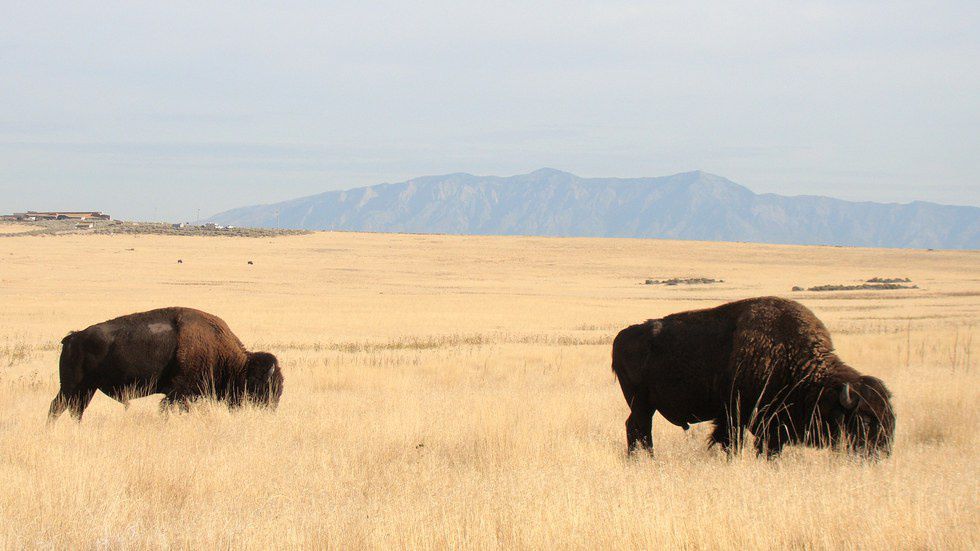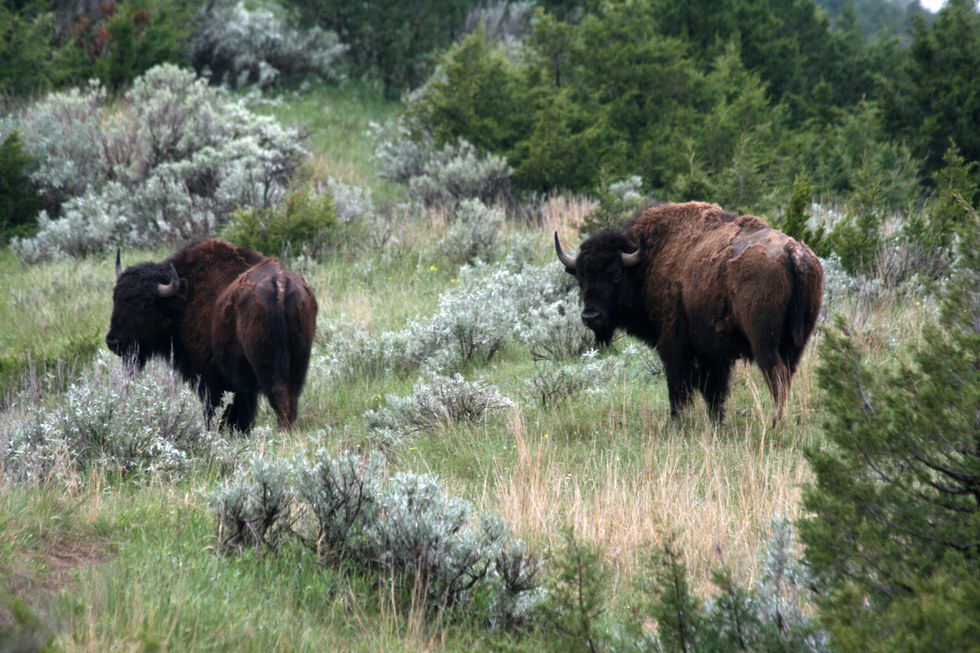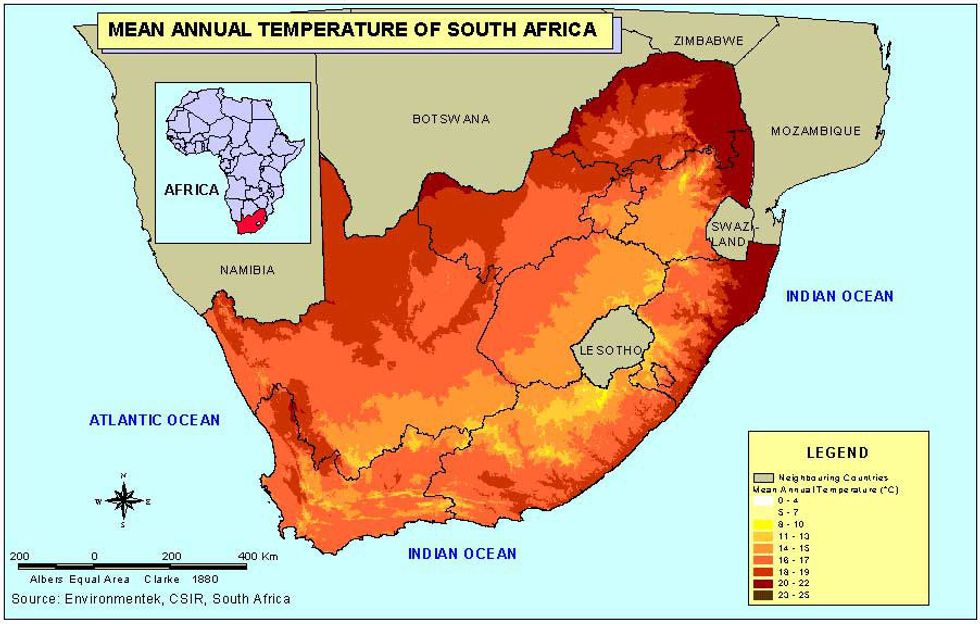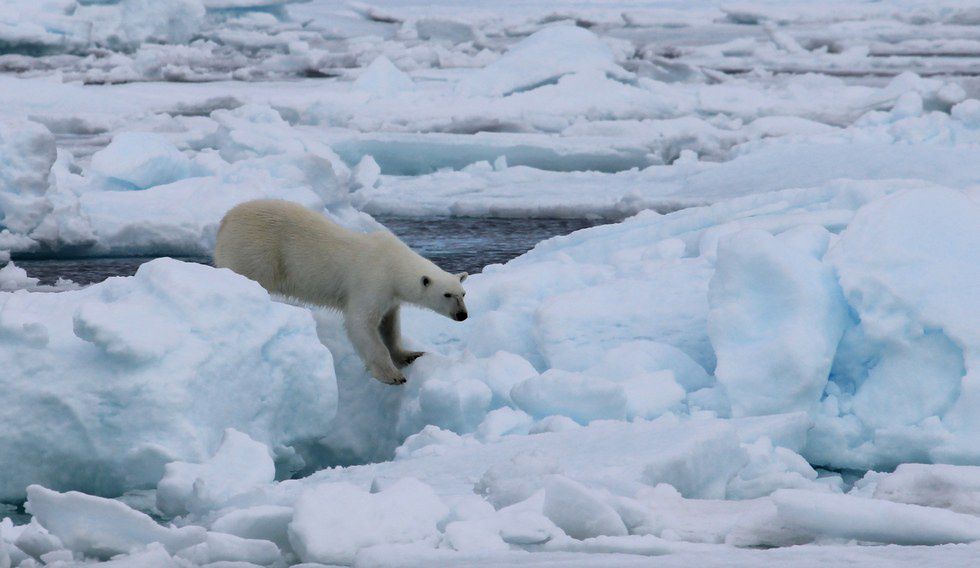Over the past summer, I was given the opportunity to learn about conservation in Port Elizabeth, South Africa. Learning about conservation efforts firsthand was essential to fully understand how much work and consideration needs to be put into trying to save a species. Graham Kerley, a professor at Nelson Mandela University that I had the opportunity to work with, was part of a Polish study on conserving the European bison and was trying to understand why these animals—which have a similar diet and habitat to cows—live and are being conserved in forest ecosystems.
The European bison are a protected endangered animal and are being conserved in forests across Europe. Bison are meant to be in grasslands and were found there long ago, but because of human activity, loss of habitat, and decreases in population, these species are being conserved in forest areas instead of their natural habitat. The reason for this takes us back to the time when these bison were forced into the forests as a last resort for survival.
European bison were hunted and killed by Polish royalty for long periods of time, being seen as a symbol of wealth and strength. With the technology shifting from basic tools to more advanced firearms, their population quickly plummeted. Bison were corralled into huge pens to later be funneled into fenced areas to be killed by royalty throughout Poland. When Russia took over Poland, the tradition of killing bison continued. Royalty would use lower class individuals to chase the bison into the funnels for the king and his men to shoot, killing an immense number of bison at a time. People in the lower class would also hunt these bison for meat, as the large amount of meat allowed them to make it through the harsh winter months. This caused the bison to be restricted to small areas, and staying in their normal grassland habitat made them easier to find and kill.
Since they were being hunted so rigorously, these animals did what many others have done and fled to the forest for protection against human predation. This was where these bison would live in order to stay alive, where they foraged on whatever grass they could find along with adapting to the forest plants to survive.
By the year 1783, there were only 284 recorded European bison throughout the country. Some were later held in captivity for conservation and released into the wild around 1950. Today, there are around 5,000 European bison left around Europe, but because of their history of living in the forest to avoid humans, all of the evidence shows forests as their habitat instead of grasslands.
Studies show that the diets of the bison consist anywhere from 60 to 95 percent of grasses and herbs, which tells us that they are trying to keep up their normal grass diet in the forest ecosystem. The Polish people have to feed the bison hay in the winter months so they can survive, due to the limited grasses in the forest ecosystems.
There are other consequences of bison living in forests besides them having to forage for food and having to feed them during the winter months. These animals are experiencing more parasites, necrotic disease of the male genitalia, and decline in body condition due to this unsuitable habitat. Bison would also move to farmlands in order to find food, which resulted in them being killed by landowners trying to keep them off their farmland.
The concept of a shifting baseline theory was presented to us while in South Africa when trying to understand climate change. Shifting baseline theory is the idea that our perspective comes from our experiences during upbringing, and what we grow up seeing and experiencing is our norm.
Since bison have lived in these forests for so long, the people who do research on them trying to conserve them see that they live and survive in the forests—therefore they are kept there and conserved instead of moving them to be conserved in grasslands. This is a perfect example of the shifting baseline theory presented to us by Kerley.
People 50 years ago would see European bison in the forests, so their perspective and research would show that these bison are meant to live in forests, therefore they would conserve them in the forests. These mistakes in understanding can have huge consequences on conservation, which we cannot always afford to make depending on the population and urgency of conserving a species and biodiversity of an area.
Shifting baselines are present in everyday life, and we see them all the time when it comes to the idea of climate change. Marietjie Landman, another professor at Nelson Mandela University who has been studying Addo Elephants for the past few decades, presented us with a lecture on climate change in Africa. She spoke to us about the effects of climate change on the flora and fauna of South Africa.
Climate change is affecting the entire planet, and it is only a matter of time until these conditions make certain areas of the earth unlivable. There has been evidence of climate change as far back as the 1940s, and it wasn’t until 2009 that there was a dramatic growth in the number of people researching the topic and exploring what exactly is happening to the Earth’s climate.
In the past 1,000 years, the temperatures have been rising at twice the rate than in previous times in Earth's past. In the past 100 years the temperatures have rose 0.6 degrees Celsius as well, and that number will only continue to increase from here on out. Based on the research that has been done, it is predicted that in the next 20 to 30 years, it will get up to six degrees Celsius warmer in South Africa.
Landman mentioned during lecture that five years ago, she wouldn’t burn at all without sunscreen in Addo Elephant Park while doing year-round research. Now, even a half an hour in the sun without the protection of sunscreen and a hat, she will burn. When looking into the changes in Addo, she found that over the past 40 years, the temperatures in Addo increased by an average of four degrees Celsius.
These temperatures may not seem that high when reading them on paper, but that change in the climate will lead to a massive animal and plant extinction, a change in the natural processes that occur around the world, more ice caps melting causing sea levels to rise, and biomes being lost or converted into different environments. Temperatures in South Africa are estimated to continue rising, and the rate of that rising will only increase as the climate goes through severe changes.
During this past century, the average global sea level rise was 10-25 centimeters. Conditions like melting ice caps threaten cold-adapted species such as polar bears, which depend on this ice for survival. Habitats are going to be lost, and this will force animals to either adapt to the rising temperatures or move to more suitable environments where they can find a new home for themselves.
It is predicted that animals that move in a latitudinal direction will have to travel about 150 kilometers with each degree that the climate rises. Some organisms are already moving toward the poles, such as phytoplankton around the coast of Europe, which are migrating towards the North Pole.
Understanding where our baseline stands is crucial to understanding how to properly proceed with conservation efforts. We are about to experience huge changes in our country, and we need to be prepared to fight even harder than before for the land we live on, the air we breathe, and the water we drink. We cannot afford to lose any more species than we have already due to a lack of understanding of the world around us.

























